How France fumbled its Africa ties And set off a geopolitical crisis
The Wall Street Journal has published an article saying that under French President Emmanuel Macron, the country’s relationship with former colonies has grown increasingly turbulent, upending French and U.S. efforts to fight terrorism. Caliber.Az reprints the article.
Shortly after a military coup in the West African country of Mali, senior U.S. officials traveled to Paris for a discreet meeting with French counterparts, who presented them with a list of names.
In an ornate office in the Élysée Palace, President Emmanuel Macron’s top Africa diplomats proposed four prominent Malian politicians as potential successors to the country’s ousted pro-French leader, a person familiar with the meeting said.
The Malian military had toppled President Ibrahim Boubacar Keïta in August 2020 following months of protests against him and his links to the country’s former colonial power. The French officials suggested they could still engineer a new civilian government, the person said, and wanted American backing for their prime contenders during talks with the coup plotters.
The U.S. officials declined to offer support, the person said, and none of the French-picked candidates ended up leading a new government in Mali, a vast desert nation that is now the epicenter of the world’s most active Islamist insurgency and the biggest foreign-policy crisis of Macron’s six-year presidency.
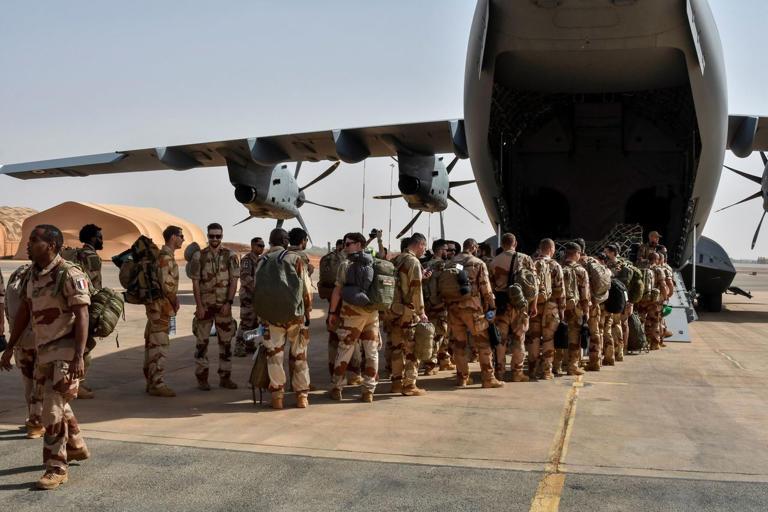
Spokespeople for the U.S. National Security Council and the Élysée declined to comment on the previously unreported September 2020 meeting. Interviews with more than a dozen current and former French, African and international officials and experts suggest that the episode was emblematic of the increasingly turbulent and often disjointed relationship between France and its 20 former African colonies—and how Macron’s administration has fumbled those ties.
Macron now faces a wave of anger on a continent that generations of French leaders considered their pré carré, or backyard, and one of the final vestiges of their country’s once globe-spanning empire.
Across much of francophone Africa, deriding the French has become the most powerful rallying cry, with putschist regimes, opposition leaders and civil-society activists blaming their former colonial power for years of underdevelopment and government mismanagement.
The backlash has also undermined U.S. efforts to fight a jihadist uprising in West Africa that has killed some 41,000 people since 2017. Washington spent hundreds of millions of dollars arming and training local militaries to battle Islamic State and al Qaeda insurgents over the past decade. Now those same commanders are forging security ties with Russia and, in the case of Mali, have hired mercenaries from the Kremlin-linked Wagner Group.
The fallout has been most intense in the troubled nations of Central Africa and the Sahel, the semiarid strip south of the Sahara. Military juntas that ousted elected governments in Mali, Burkina Faso and Niger have bolstered their popularity by kicking out French troops that were helping them fight jihadists.
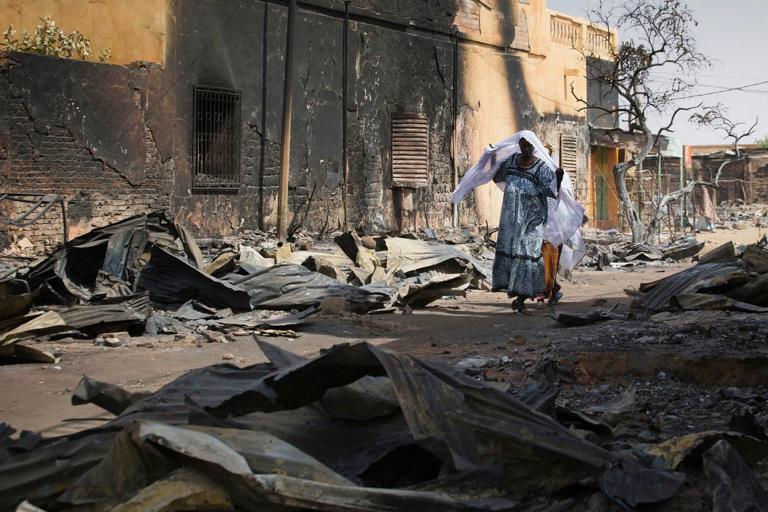
Faced with restrictions on providing military aid to governments that took power through coups, the U.S. has in recent months slashed its presence in Niger, long Washington’s foremost ally in the region, to 650 troops from around 1,100, and cut back activities at its Agadez drone base.
The Biden administration is now in talks to station drones in Ghana, Ivory Coast and Benin to try to stem the jihadist spread. France still has soldiers in Chad, Ivory Coast, Senegal and Gabon.
Even in more stable former colonies, such as Senegal, French-owned businesses, including TotalEnergies gas stations and Auchan supermarkets, have come under attack during antigovernment protests. Taken together, the backlash against France across Africa has morphed into one of the biggest anti-Western rebellions since the end of the Cold War.
“We are fed up with France. We are fed up with the contempt that they show us,” Yaou Sangaré Bakary, the junta-appointed foreign minister of Niger, told an October rally outside what was then France’s main base in the capital Niamey. “Go ahead, leave us alone. We’ll be just fine.”
Reset
Macron, France’s first head of state born after the end of the colonial era, had started his presidency in 2017 with a pledge to reset his country’s relationship with its former African colonies. He riled up conservatives by declaring colonization a “crime against humanity” and promised to return looted African artifacts and overhaul a regional currency half of whose reserves are still kept in Paris.
After decades of policies that effectively propped up corrupt but francophile autocrats—a practice that came to be known as la Françafrique—Macron said he wanted to deepen ties with African civil society and countries that hadn’t been part of the French empire.
“I am from a generation that does not come and tell Africa what to do,” Macron told a cheering crowd of students at a university in Ouagadougou, the capital of Burkina Faso, months after taking office. “The proposal with which I come before you is…that we invent a friendship together.”
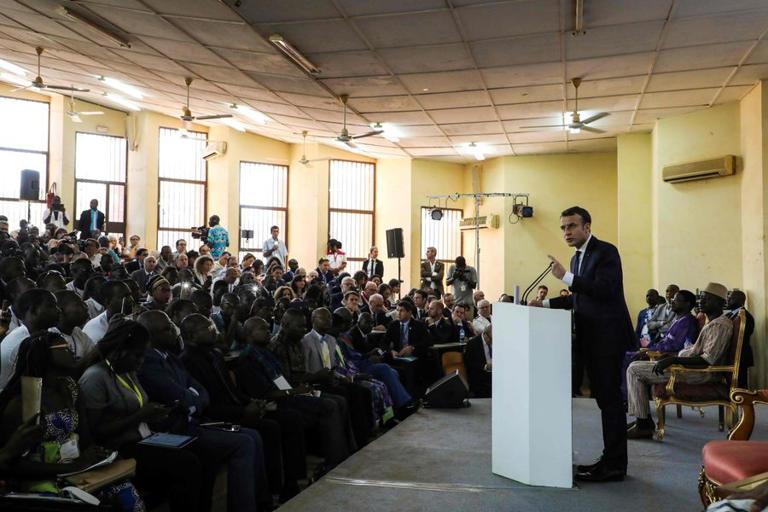
Macron’s ideas reflected a shifting reality in France’s economic relations with the continent. During the Cold War era, French companies like Elf Aquitaine, now part of Total, or aluminum maker Pechiney, which was taken over by Anglo-Australian mining giant Rio Tinto, were dependent on resources such as oil, iron and bauxite from the country’s former colonies. Today, France’s biggest trading partners in sub-Saharan Africa are Nigeria, Angola and South Africa, three countries it never colonized.
Officials close to Macron say he had initially planned to reduce France’s troops in Africa, worried that French military bases were nurturing suspicions that Paris would use its forces to meddle in domestic affairs. But French and U.S. officials were concerned that, like the Islamic State caliphate in Syria, the insurgency in the Sahel could become a haven for terrorists who would hit the West.
French troops in 2013 had led a successful campaign to liberate northern Mali, including the Unesco World Heritage site of Timbuktu, from al Qaeda militants. When attacks spread to Burkina Faso, Niger and Chad, Macron’s predecessor, François Hollande, in 2014 launched Operation Barkhane to help Sahelian governments stem the jihadist tide.
Macron continued adding troops to Operation Barkhane, which at its peak was manned by some 5,000 French soldiers. They killed local jihadist commanders, but didn’t contain the broader insurgency. French officials say a big part of the problem was a failure of the local governments to provide services in long-neglected areas.
“We were going around in circles,” said Marc Mémier, a former adviser to France’s special envoy to the Sahel and now chief of staff to the president of the defense committee in the lower house of parliament. “There was no political will from the states where Barkhane was present to move into the territories where terrorists had been eliminated.”
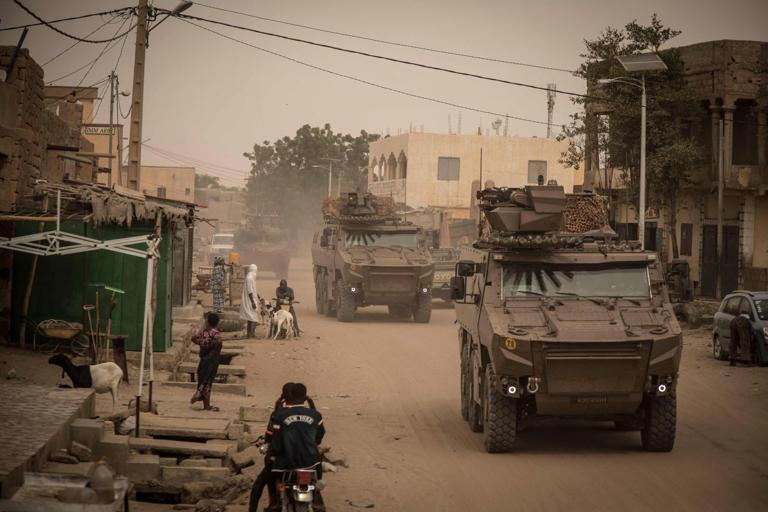
Islamist groups stepped into the void, doling out their own brand of justice through shariah courts. Some communities saw them as protectors against national militaries that the United Nations and rights groups have accused of atrocities against civilians.
France’s biggest mistake, Mémier said, was to keep fighting an increasingly unpopular war even as it realized that local armies were plagued by problems of governance and corruption. “Without the support of Sahelian governments, it was a losing battle,” he said.
Sahealian soldiers felt that they were shouldering the brunt of the fighting, under the orders of French commanders and with only limited access to French intelligence, said Delina Goxho, a researcher at Scuola Normale Superiore in Florence, who was based in Niamey until this summer’s coup. In the decade after 2013, 58 French soldiers were killed in action in the Sahel, compared with several thousand soldiers from Sahelian countries.
Mali’s military-appointed prime minister, Choguel Kokalla Maïga, in interviews alleged that France was training terrorists. Maïga hasn’t offered any evidence to support his claims, which French officials and independent researchers say are false.
Conspiracy theories surrounding France’s military presence, political meddling and economic exploitations nevertheless spread on social media, often amplified and at times orchestrated by Russia.
The Macron administration’s efforts to counter such disinformation were often clumsy. In December 2020, Meta said it had removed dozens of fake accounts and groups from Instagram and Facebook that were linked to the French army. Using stolen profile pictures, including one of boxing legend Muhammad Ali, the French accounts sought to uncover and regularly sparred with a network of Russian online trolls.
François Chauvancy, a cyberwarfare specialist and retired French army brigadier general, said his former colleagues made “beginner’s mistakes” in their cybercampaign. “We underestimated our adversary,” he said.
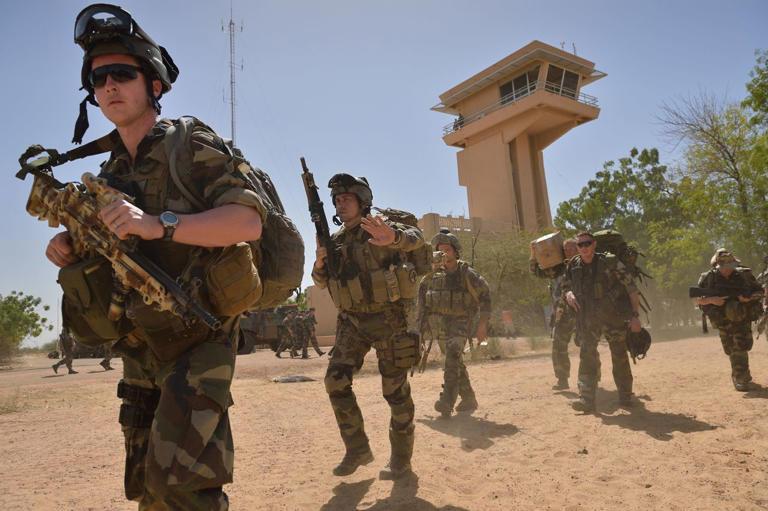
French troops also airdropped fliers over towns and villages in northern Mali to get the local population on their side. Some pamphlets that were supposed to say “Barkhane protects you” read instead “Barkhane is watching you” because of an error in the translation into local languages, according to a 2021 National Assembly report. Earlier that year, a French airstrike in Mali accidentally killed some two dozen guests at a wedding, according to a U.N. investigation.
French officials say that while they made mistakes in the Sahel, they are unfairly blamed for issues that, some 60 years after independence, were the responsibility of national governments. “France played the role of the scapegoat,” said Mémier, the former defense adviser.
Drawing heckles
Macron’s at times flippant communication style also prompted outrage. During his 2017 speech in Ouagadougou, the mood turned when Macron criticized Sahelian countries’ birthrates, which are among the highest in the world.
“When you have seven, eight, nine children per woman, are you absolutely sure that in every case, in every family, this was the woman’s choice?” Macron asked the crowd to a mix of heckles and applause. For some of those following the speech, the question recalled previous comments in which Macron called the high birthrates a “civilizational” problem that was destabilizing the Sahel.
An offhand remark during a question-and-answer session with the Ouagadougou audience also failed to land. “He’s gone to fix the air conditioning,” Macron quipped when his Burkinabe counterpart, Roch Kaboré, walked off the stage shortly after a question on the country’s electricity shortages. Kaboré’s aides later said that the president had gone for a bathroom break.
Commentators in African countries and France said Macron was being racist and condescending—accusations he denied.
“Macron’s communication was disastrous,” said Nicolas Normand, a former French ambassador to Mali, Senegal and other former French colonies. “He never stopped giving grist to the mill of the enemies of France.”
Kako Nubukpo, a Togolese politician and commissioner at the West African Economic and Monetary Union, which represents a bloc of countries using a France-backed regional currency, said Macron’s pledges to distance France from questionable African leaders created expectations he couldn’t meet.
In October 2021, Macron hosted an Africa summit in Montpellier, inviting young civil-society activists but not a single African president. “He gives a speech that makes young people believe that he will get rid of African dictators,” said Nubukpo. “And then he doesn’t do it. It weakens France’s position. And it shows extreme arrogance toward African heads of state.”
In reality, it was the same African leaders that France depended on in its fight against jihadists in the Sahel. That renewed the need for awkward alliances with politicians that held elections in name only or whose administrations were embroiled in corruption scandals.
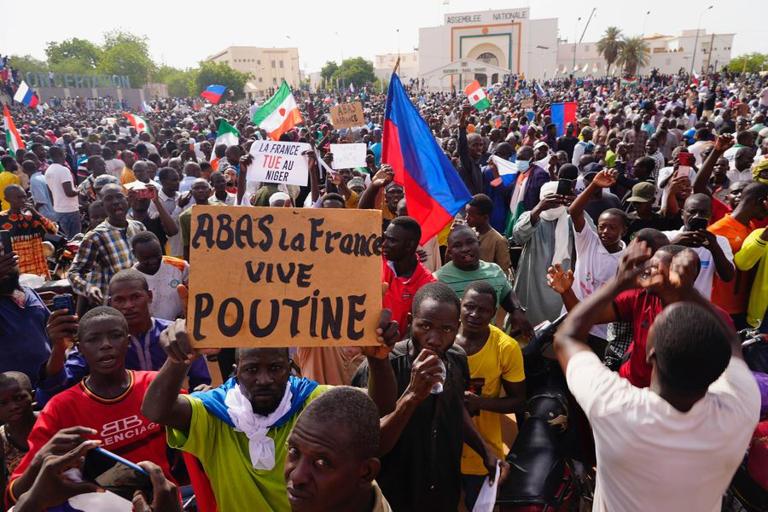
The 2020 protests that preceded the Malian coup were triggered by anger over a parliamentary election in which turnout was just 23%. Even after security forces violently repressed demonstrators, the French government stood by Keïta’s government.
A year later in Chad, Macron was the only Western head of state to attend the funeral of that country’s strongman of 30 years, Idriss Déby. His administration recognized his son, Mahamat Déby, as the new president, even though his move to power ignored the line of succession stipulated by the Chadian constitution.
Many of those who joined pro-coup protests in Mali, Burkina Faso, Niger and Gabon, where the military ousted President Ali Bongo in August, said they saw democracy as a Western-imposed concept that hasn’t delivered on its promises. On the U.N.’s human development index, which measures life expectancy, years of schooling and per capita income, Burkina Faso, Mali, the Central African Republic and Niger are ranked in the bottom eight out of 191 countries.
“Honestly, for now, I don’t need democracy,” said Rama Hervé, at a rally against the French military presence in Niger. “I am hoping for 10 years with the military, because we need to deal with the education system, healthcare and, above all, the insecurity.”
Nubukpo, the Togolese commissioner, said many French policies—including its support for the West and Central African franc, which remains pegged to the euro—have primarily benefited local elites. “They buy houses in Paris and send their children to study in France,” he said. For the broader economy, he said, governments’ lack of control over their exchange rates has inhibited financing for businesses and growth.
Nubukpo said cutting ties with France, whether it comes to the currency or military support to fight jihadists, is a necessary step, even if it leads to more turbulence in the short term. “It’s the beginning of a new era,” he said. “But also an era of instability, of uncertainty.”








